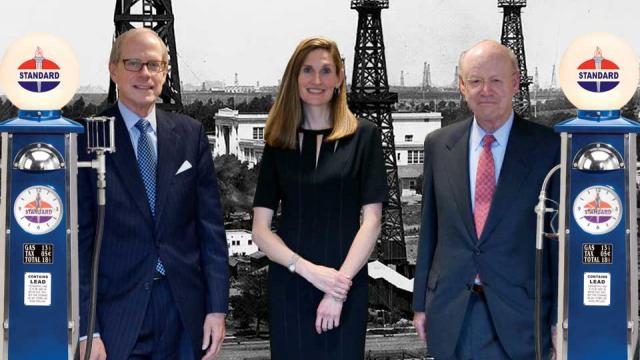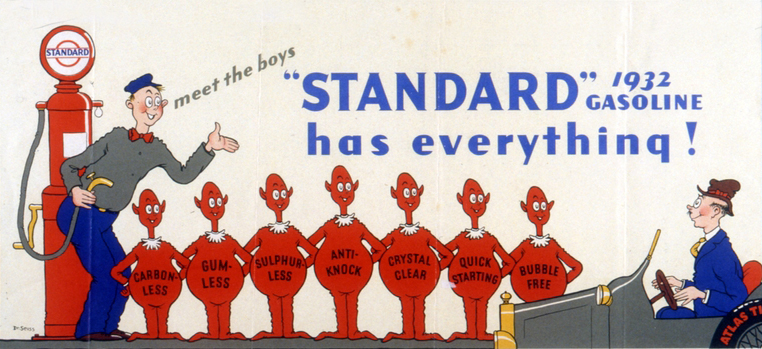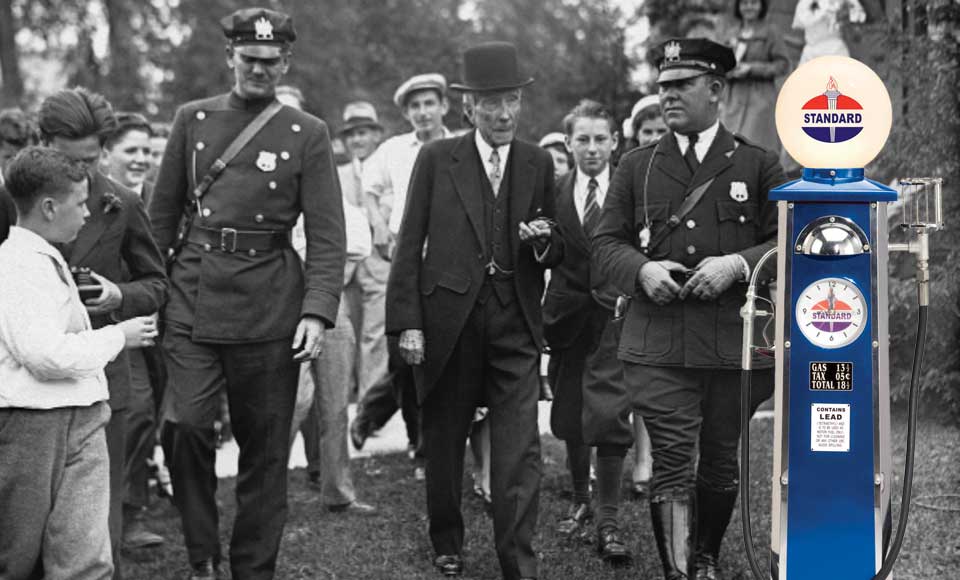
The heirs to the fabled Rockefeller oil fortune withdrew their funds from fossil fuel investments on Monday, lending a symbolic boost to a $50 billion divestment campaign ahead of a United Nations summit on climate change.
The former vice-president, Al Gore, will present the divestment commitments to world leaders, making the case that investments in oil and coal have an uncertain future.
With Monday’s announcement, more than 800 global investors – including foundations such as the Rockefeller Brothers, religious groups, healthcare organisations, cities and universities – have pledged to withdraw a total of $50 billion from fossil fuel investments over the next five years.
The Rockefeller Brothers Fund controls about $860m in assets, said Beth Dorsey, the chief executive of the Wallace Global Fund and the Divest-Invest movement, which has led the divestment campaign. About 7% are invested in fossil fuels.
But the Rockefellers’ decision to cut their ties with oil lends the divestment campaign huge symbolic importance because of their family history. The divestment move also helps bring a campaign launched by scrappy activists on college campuses into the financial mainstream.
But for oil, there may not have been a Rockefeller fortune. John and William Rockefeller were the co-founders of the Standard Oil Company, which at the time operated the world’s biggest refineries, and overtime spawned Exxon, Amoco and Chevron.
Now, after a year of deliberations, the descendants of those original Rockefellers had decided the time had come to move away from oil.
“John D Rockefeller, the founder of Standard Oil, moved America out of whale oil and into petroleum,” Stephen Heintz, president of the Rockefeller Brothers Fund, said in a statement. “We are quite convinced that if he were alive today, as an astute businessman looking out to the future, he would be moving out of fossil fuels and investing in clean, renewable energy.”
In addition to the Rockefellers, the World Council of Churches, which represents some 590 million people in 150 countries – also pulled its investments from fossil fuels on Monday. The move represented a turning point for a movement which began by demanding that universities purge their financial holdings of ties to the fossil fuel industry.
About 30 cities have also chosen to divest, including Santa Monica and Seattle.
“When you have the Rockefellers and the World Council of Churches and institutions with global reach coming together and divesting, then this movement which began just three short years ago has really reached a significant turning point,” Dorsey said.
In that time, supporters such as Archbishop Desmond Tutu have framed divestment from fossil fuels as a moral imperative – like the anti-apartheid movement of a generation ago.
“Climate change is the human rights challenge of our time. We can no longer continue feeding our addiction to fossil fuels as if there is no tomorrow, for there will be no tomorrow,” Tutu said in a video address.
The Rockefeller Brothers Fund over the years has been a big supporter of environmental causes, including to campaign groups opposed to fracking and the Keystone XL pipeline, which made for an awkward fit at times with its continued investment in oil and gas. The family plans to first divest from tar sands commitments.
A number of universities have also started to cut their ties with fossil fuel – with Stanford University dropping coal holdings from its $18 billion endowment.
But divestment remains a hard sell. The University of California system said last week it would continue to hold on to fossil fuels. Harvard University has also resisted pressure from faculty and students to divest – although Yale has said it will look into whether renewable energy offers a better bet in the long run.
“In the last great divestment campaign, Harvard said no before it said yes. I think it’s just a matter of time,” Dorsey said. “Unlike with the anti-apartheid movement, this is not just an ethical issue. There is a powerful financial reason as well.”
3 WAYS TO SHOW YOUR SUPPORT
- Log in to post comments















